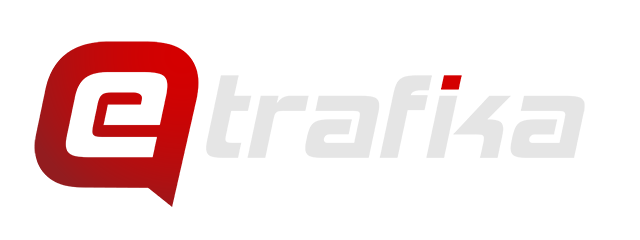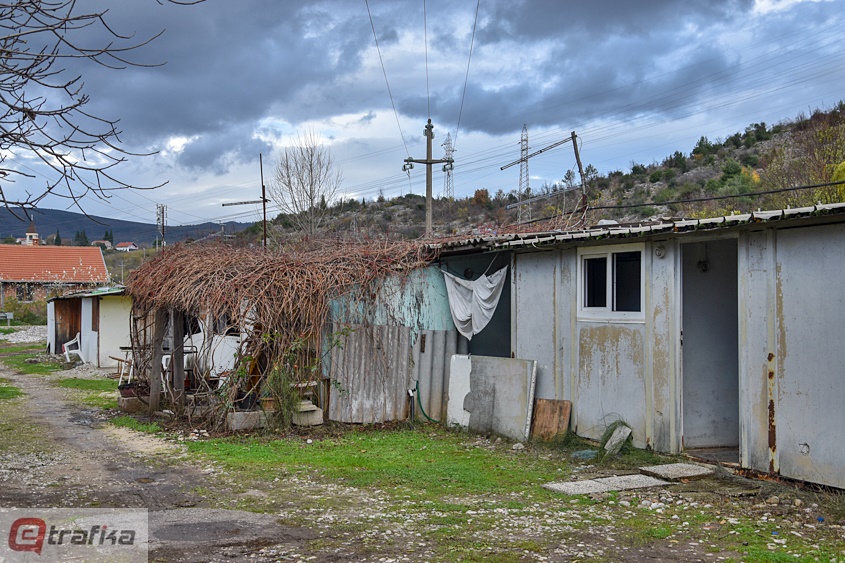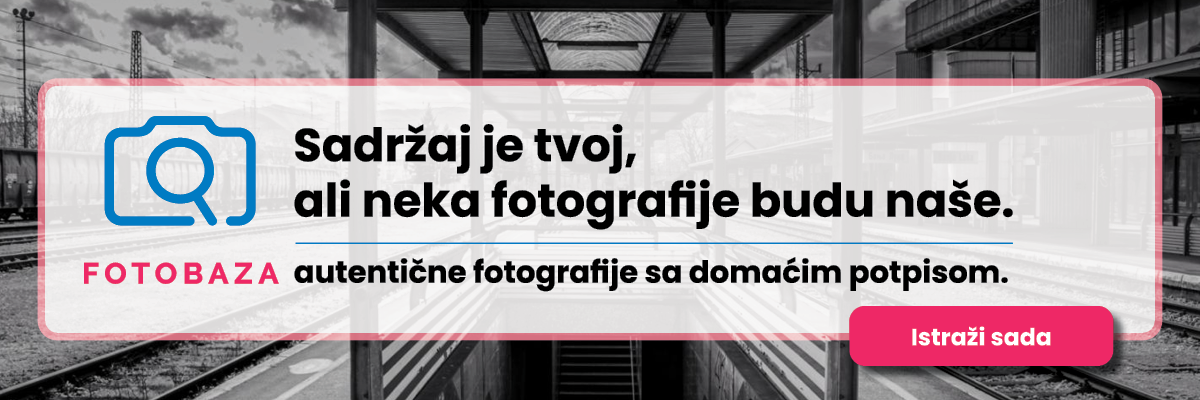Having lost everything they had in the war, expect for their bare lives, thousands of people in Bosnia and Herzegovina have ended up in collective centers. Although introduced only as a temporary solution, deteriorated buildings and barracks have become a part of everyday life for some of them. And they still are, nearly 30 years after the war. Some died here, without living long enough to get a new home. Some were born here, and they don’t know of any better life.
Written and photographed by: Vanja Stokic
Retirement Home in Doboj looks like an abandoned building from the outside. Even when you start climbing the upper floors, you do not get a feeling that anyone lives here. However, the things kept on the balconies confirm that you have reached the right location.
Borka Mikulic fled Maglaj. She says that she was forced to leave her house and a large estate. Both valued at 120.000,00 EUR. She never received any compensation.
„I came to the Retirement Home at the time when evictions were taking place, in 2003, right? Well, I’ve been here for 20 years, that’s it. I even do not know which year it is now“, she is telling us this in the building hallway.
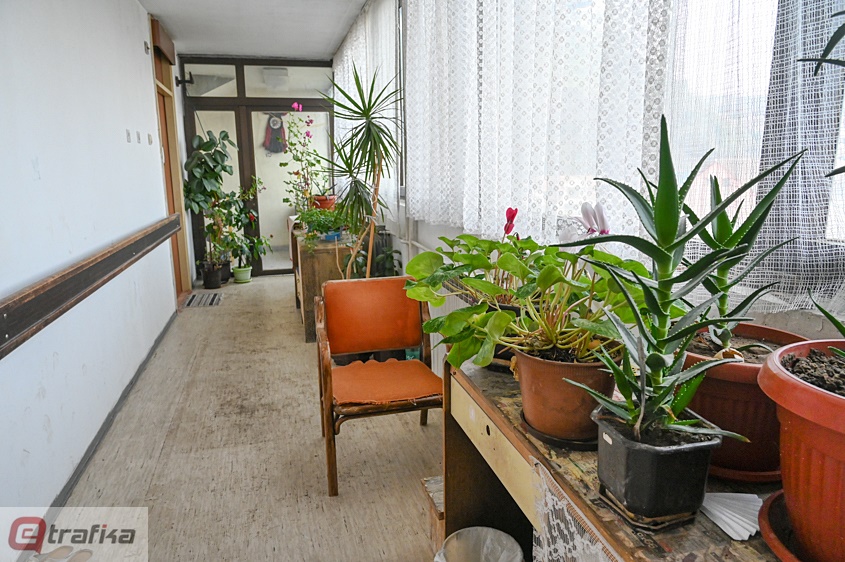
She and her husband live in one room. The room serves as a kitchen, a dining room, a bedroom, a living room, a pantry… That room means the whole world to them.
„Right now I have no ideas what will happen next. We were told that we would allegedly move to some building in the Bare settlement in April. But I am not sure. We are trying to be brave, to keep the hope alive, to hope for I don’t know what… I just wish that we stay alive and healthy. I keep on thinking something will happen, something will be there for us… That someone will pay for what is ours, or will provide accommodation for us, whatever“, she says.
She tells us that she was on the coast last summer. In the spa. Those 14 days were so important to her.
“I was granted this right by the Fund (translator’s note: Republic of Srpska Health Insurance Fund), as a pensioner. I am a pensioner with the minimum pension of 108.00 BAM”, she explains.
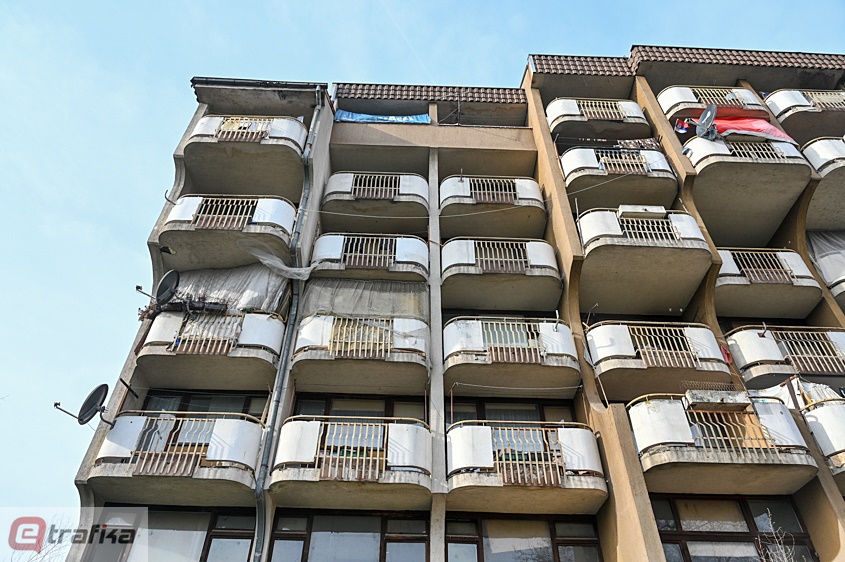
The Republic Secretariat for Refugees and Migrations is in charge of collective accommodation on the territory of the Republic of Srpska. This institution says that in the entire entity there are “collective types of housing that are not typical collective centers” located in Doboj, Zvornik and Gradiska. There are 106 persons in total living in these units.
“These are mostly persons who are socially vulnerable and who have not managed to resolve their housing right. By the end of September this year, we plan to finalize the construction of three residential buildings with 134 residential units in Doboj, where 93 beneficiaries of collective housing are to be accommodated. Also, by the end of July, a building with 37 residential units will be constructed in Zvornik and will accommodate those families currently living in collective housing in this town” says the Secretariat.
Collective Centers’ Closure Project in the Republic of Srpska was launched in 2015. So far, 359 families of the targeted 703 have been taken care of. It is envisaged that by the end of this year all activities will have been completed and that all the centers will have been closed, with families living in their new homes.
“Subprojects cover the construction of several family housing facilities with 573 apartments in total, and 130 accommodation units in specialized institutions and institutions for social-geriatric care in the towns/municipalities of Derventa and Trebinje. We have completed the reconstruction of the old hospital in Derventa, turning it into a social-geriatric institution with 100 residential units, where this reconstruction also involved the procurement of electrical material, kitchen equipment, medical equipment and furniture” adds the Secretariat.
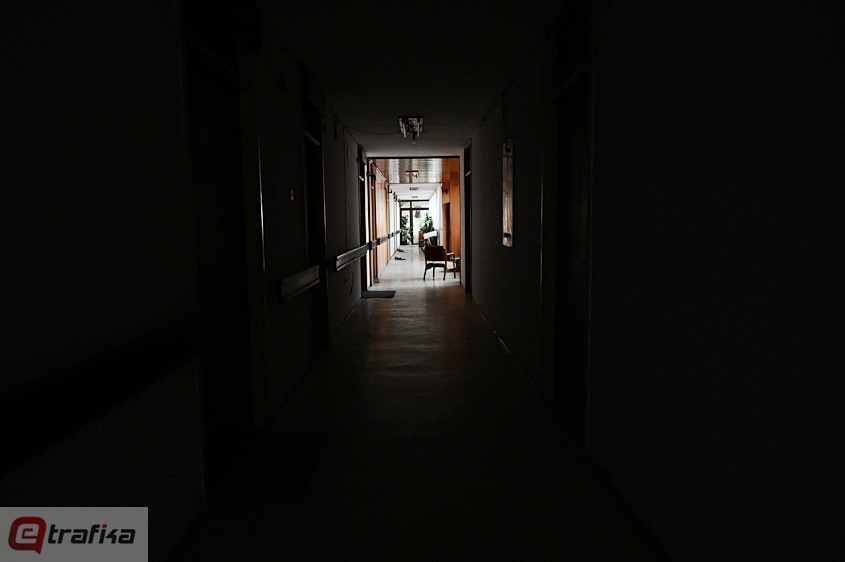
For this purpose, Republic of Srpska provided funding in the amount of 21 million BAM, and the remaining 35 million BAM were covered from loans.
BaH Ministry for Human Rights and Refugees withheld information regarding the situation in the entire country. They read our request for free access to information, but failed to respond.
What we found in the Federation BaH is even worse than what we witnessed in the Republic of Srpska. Some twenty kilometers away from Mostar, in the place called Salakovac, there are four families living in dilapidated barracks. Of them, four are small children. They are waiting for their turn to get an apartment, but are not sure whether they’ll ever get it.
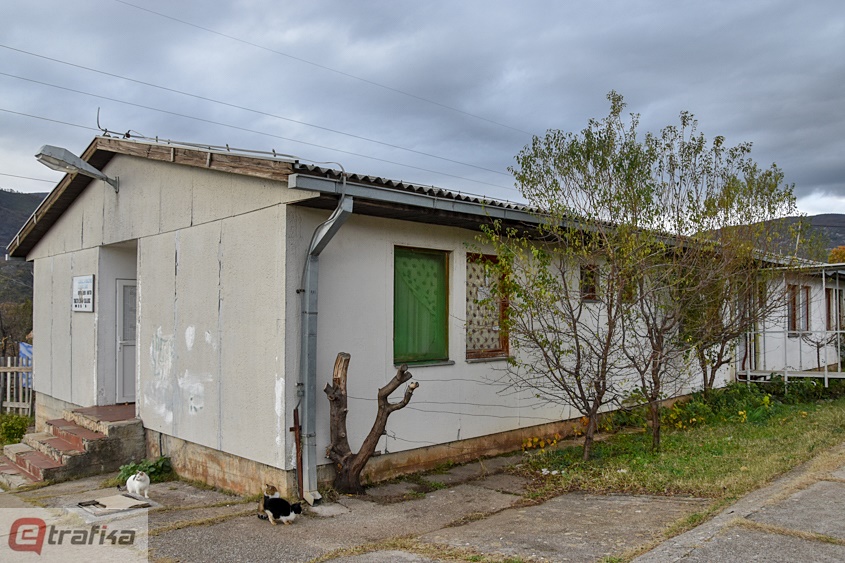
“I was pregnant with my younger son when we came here. I gave birth to him in this camp. He is 20 now. He doesn’t know of any other life, he only knows of this Centre” says Jasmina Behramovic, a displaced person from Trebinje.
She says that she is forced to live here, for the simple reason that she has no other alternative.
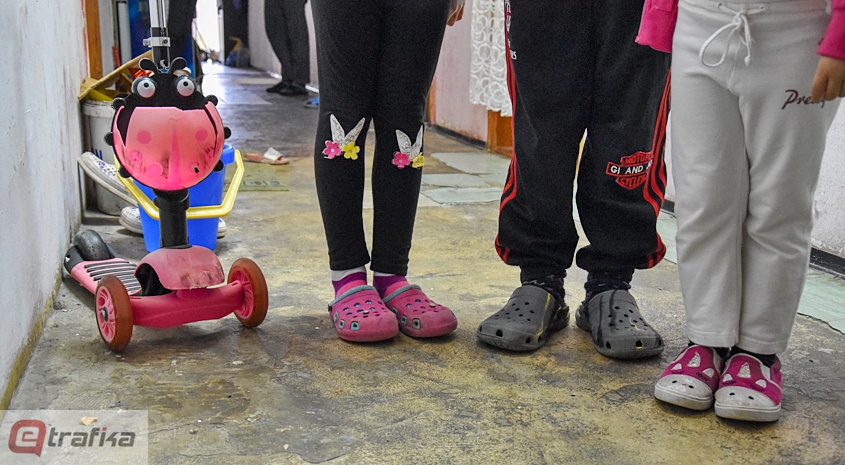
“I can’t go back to Trebinje, I have nothing there. They promised me something, and I prepared all the documents. They told me there would be some building, that it would be constructed. Social housing, as they call it. I have no monthly income. If I find something, I manage to earn some 20-30 BAM for a day-labor, and that’s all I have. And the food we get here. It is all true” she explains.
One family gets to use one room. They all share a bathroom. At the beginning, Jasmina lived in a single room with six other family members. They were sleeping on a sponge. In the meantime, some tenants went away or died, leaving their rooms vacant. It made it easier for others.
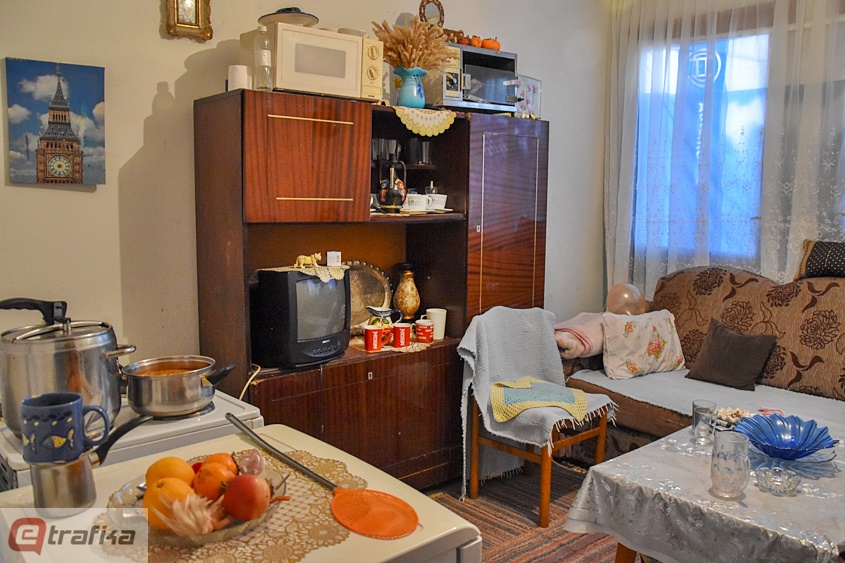
“To tell you the truth, until I see the keys in my hands, I don’t believe in anything anymore. I am sick of living. I want to see it with my own eyes. It’s been 20 long years. That’s really too long. And I no longer have such life energy to be able to go out and work”, she responds when asked whether she still had a hope that the state would give her an apartment.
An hour drive away, in the place Tasovcici close to Capljina, there are about thirty adults living in the barracks. Alojz Stijepic tells us that he was among the first ones who moved here. He is not sure which year it was. He only knows it was in the nineties, and that there were about 400 people here then.
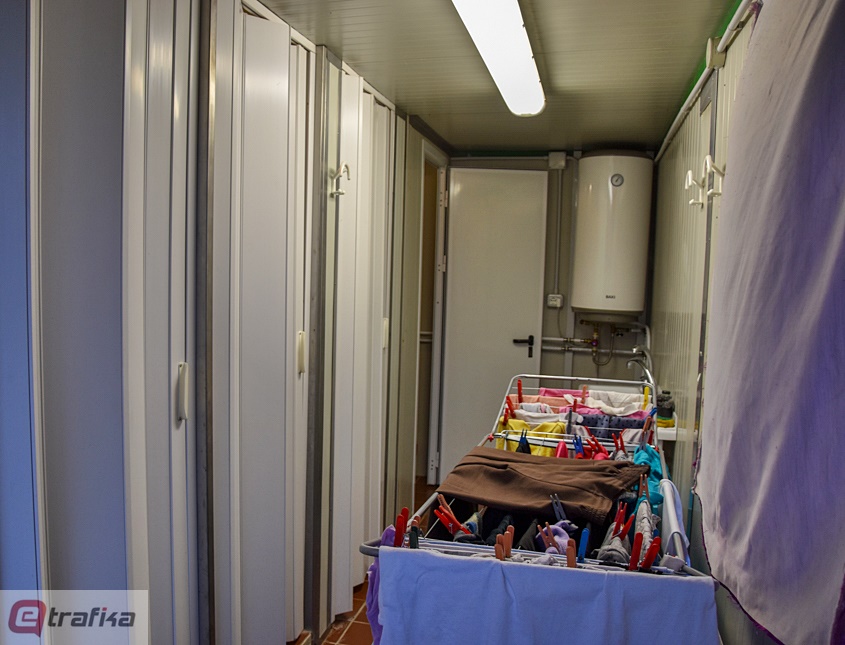
“I have some 20 square meters of living space. Right now there is not much I need at the camp. My relatives have bought everything I need. I just miss simple things, like not to have to go out to use the toilet when it is raining, or use the shower because I get cold when I have to walk from the shower back to the camp. And I miss some quietness and piece too” he explains.
He heard about some apartments being built for the people who are still living here.
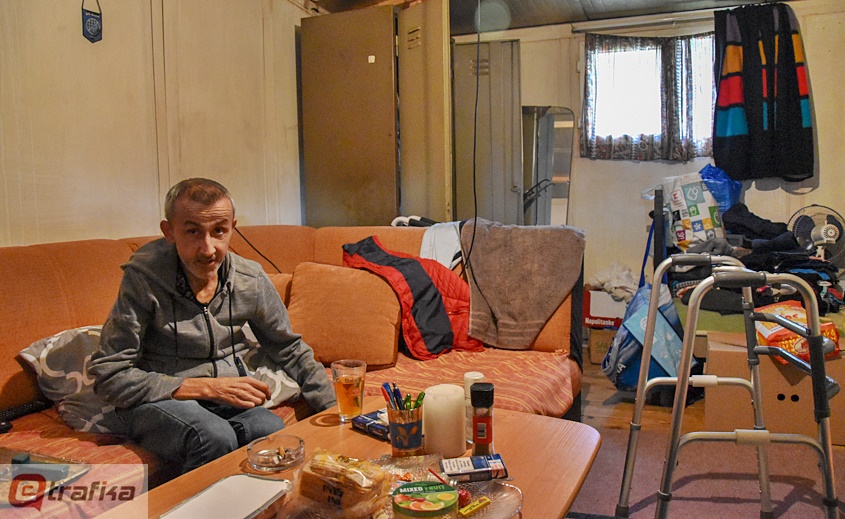
“Look, this is the kitchen and the bedroom and the living room, and everything else in one room. In the new building these rooms are at least separated. I will have a separate bedroom and a separate bathroom. Who knows, I might even have a balcony. I’m not sure, as I didn’t go to see the building. My neighbor, who passed by the building, says it seems to him that there will be balconies”, Alojz hopes.
Alojz walks with the help of a walker. After the car accident in 1996, he started using crutches. But few months ago he broke his hip and a femur.
“I only believe in Good and in myself. It takes a good will to live” adds Alojz as he walks us out of his room.
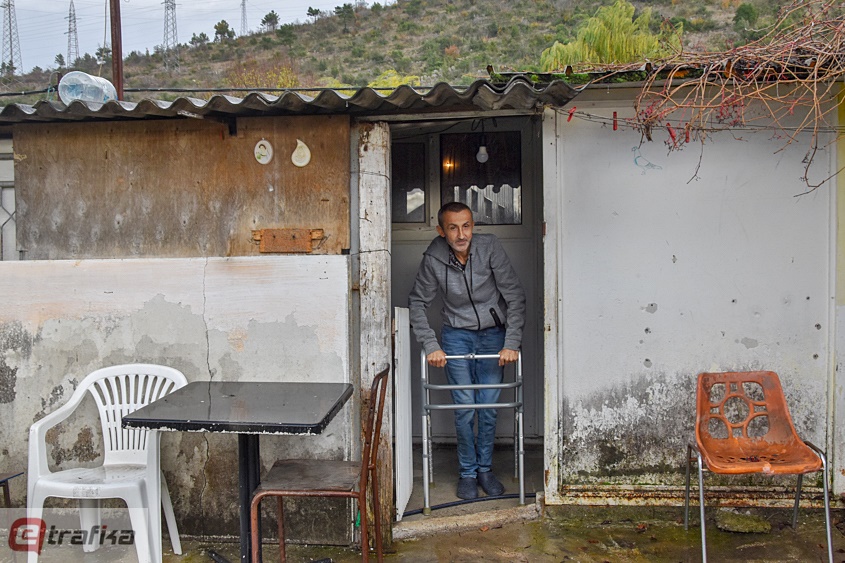
People around are engaged in their own activities. They are all kind, but don’t want to give a statement. There are even small gardens in front of some barracks. An attempt to give this space a life. One woman proudly speaks of her children. She raised three of them in the barracks. As she says, one daughter got married, her son found a job, and the youngest daughter is studying in Mostar. She is showing us her diplomas.
“This is what I am proud of”, she briefly says.

